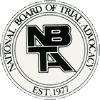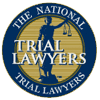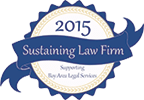News & Resources
I Was Injured in a Work-Related Accident. Who’s Responsible for Paying My Bills?
In most cases, when you are injured in an auto accident — such as being rear-ended on your way to the grocery store — your personal insurance policy will cover most (if not all) of your medical expenses. But what happens if you are injured in an accident while you are driving for work? Can you seek compensation from your employer? In this scenario, there are two main options available to you: filing a workers’ compensation claim and pursuing a personal injury action against the at-fault party. Below, we will examine each.
For more information about any of the topics covered herein, please contact a Tampa car accident lawyer.
Option 1: File a Workers’ Compensation Claim
The workers’ compensation program is an insurance program that provides a fixed set of benefits to employees who suffer injuries in the course of their employment. If you were driving for work-related purposes when your accident occurred, you may qualify for workers’ compensation benefits if one or more of the following applies:
- Driving is a component of your work duties (e.g., making deliveries)
- You were running an errand for your employer
- You were driving from one work location to another
- You were transporting a coworker for business purposes
- You are paid for travel time to and from your home
In short, you likely are eligible to receive workers’ compensation benefits if your injury occurred while you were on the clock and performing work-related tasks. However, there are certain scenarios in which you may be excluded from workers’ compensation benefits. For example, if your accident occurred while you deviated from your official duties — such as making a detour to run a personal errand while you were out — you may be ineligible for benefits. Accidents that occur while commuting to and from work also generally do not qualify for workers’ compensation coverage.
Workers’ Compensation Benefits
If your accident qualifies for workers’ compensation, you will be eligible for both medical benefits and lost wages.
Florida’s workers’ compensation program covers all reasonable and necessary medical expenses for injured employees, including:
- Doctors’ visits
- Hospitalization
- Physical therapy
- Medical testing
- Prescription drugs
- Medical equipment
- Mileage reimbursement for travel to and from medical appointments
You may also be entitled to receive lost wage benefits, the amount of which varies according to the severity of your disability and your average wage. For example, individuals who are totally disabled and unable to work at all (known as Temporary Total Disability) are entitled to receive 66 ⅔% of their average weekly wage at the time they were injured (up to a maximum of $939 per week in 2019). Individuals who are partially disabled, but who are unable to earn as much as they did before their injury, generally are entitled to receive Impairment Benefits in the amount of 75% of their Temporary Total Disability rate. For more information about lost wage benefits available under the Florida workers’ compensation program, please contact a Tampa car accident lawyer.
Option 2: File a Personal Injury Action Against the Negligent Driver
One of the strengths of the workers’ compensation program is that it provides injured employees a guaranteed set of benefits regardless of fault, which introduces a degree of certainty over the recovery they can expect to receive. A weakness of the program is that these benefits are fixed by statute and may not be enough to totally compensate the recipient, as certain types of recovery — such as pain and suffering and punitive damages — are not available to workers’ compensation recipients. However, these damages are available through a personal injury action against the driver who was at fault for the accident.
To recover pain and suffering and punitive damages (if applicable), or if your accident scenario does not qualify for workers’ compensation, you must file a civil suit against the party who was at fault for your accident. Unlike workers’ compensation, personal injury actions are fault-based, meaning that you must prove by a preponderance of the evidence that the defendant negligently caused your injuries. To prove negligence, you must show:
- The defendant owed you a duty to refrain from causing harm
- The defendant breached that duty by engaging in behavior that an ordinary and prudent person would not have engaged in under the circumstances
- The defendant’s breach of duty actually and proximately caused your injuries
- You suffered actual harm as a result of the defendant’s breach of duty
In a civil suit, the amount of damages you recover is limited only by the extent of your injuries, qualifying you to obtain the full range of damages available in the civil legal system — medical bills, loss of wages, loss of consortium, pain and suffering, punitive damages, etc. However, if you fail to prove each element of negligence, there is a chance that you may recover nothing. And because the civil system is fault-based, the recovery for your damages will be reduced by any amount for which you were at fault. So if the court finds that your damages total $100,000, but that you were 30% at fault for the accident, you will receive damages only for the amount for which you were not responsible ($70,000).
A Note on Subrogation
To prevent injured parties from receiving potentially double compensation, the law allows workers’ compensation insurance providers to pursue subrogation — the legal right of an insurance company to pursue a third party who caused the loss. Thus, if you file a workers’ compensation claim and pursue a civil action against the negligent driver, your workers’ compensation insurance provider is entitled to recover any amounts it already paid you from your civil damages award. If you choose not to pursue the responsible party and only file a workers’ compensation claim, your workers’ compensation insurance provider may file a claim against the at-fault party on your behalf to recover any amounts it paid to you.
Contact a Tampa Car Accident Lawyer
The interaction between the workers’ compensation system and civil personal injury actions is complex. If you have suffered an injury for which you may be entitled to workers’ compensation, but are considering a civil action, you should discuss your situation with an experienced attorney to ensure that you recover the maximum amount possible. For more information, please contact a Tampa car accident lawyer at Alley, Clark & Greiwe by using our online contact form or calling us at 813-222-0977.




















